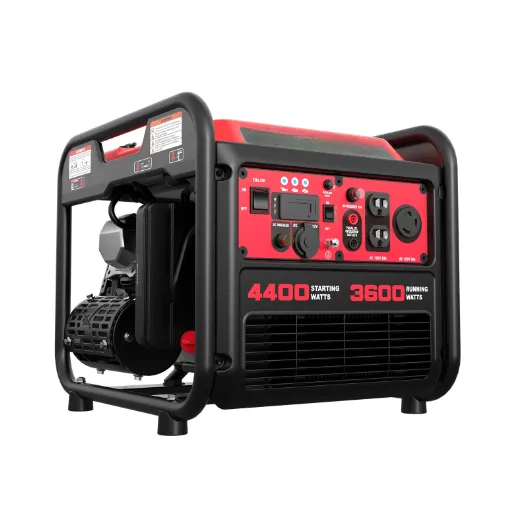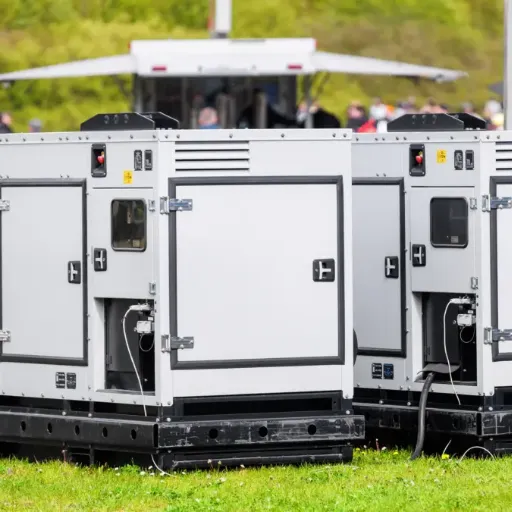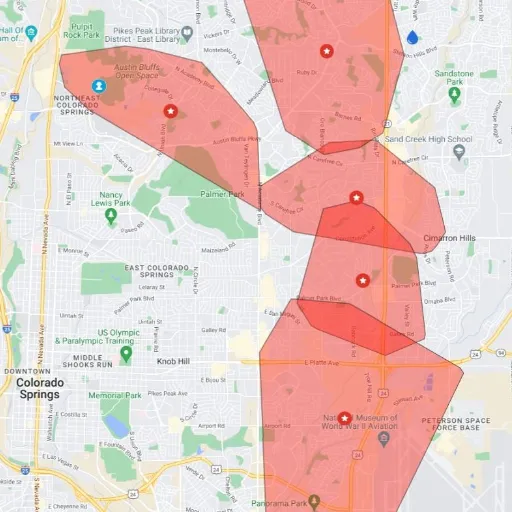Whenever there is an unannounced power outage, the impact on restaurants is quite significant and can sometimes shorten the viability of the businesses. Whether it’s the stock going bad very quickly or the ambience for the guests in the dining area, alternative power has become indispensable to most restaurants. Beyond that surface, there is a much more comprehensive generator backup power setup that is custom-made for eateries and sluices, dissipating the decay and/or heat more effectively, for the people surrendering their stomachs to your venue or establishment. We will also discuss how a fail-proof power outage system can prevent turmoil in the kitchen and save the time diners wait for food, as well as address their cravings. So, make sure to find out how strategic installations, such as a generator, will be particularly advantageous to the owner of the eatery in the near future for the success of the business.
Understanding Restaurant Generators
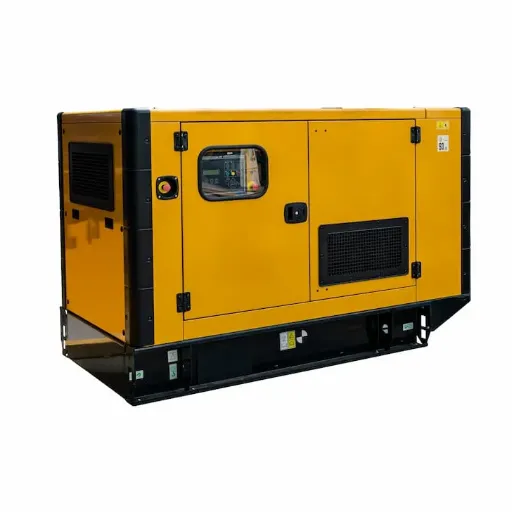
Restaurants rely on generators to continue operating even when there is no electricity, making them a vital appliance in the food industry. As a restaurant owner, you should appreciate the significance of having a power backup. Food spoils quickly, which results in unwanted expenses, loss of clients, and business. The installation of the proper genset model ensures the uninterrupted functioning of supermarkets, cafes, and other facilities. It is cost-effective as it protects the three structures: refrigeration, cooking, and evaporation, as well as the cash registers during business operations. Thanks to innovation in backup power solutions, these systems have become a reliable investment for industries such as food service establishments, including restaurants and supermarkets.
Types of Generators for Restaurants
| Type of Generator | Key Features | Suitable For |
|---|---|---|
| Portable Generators | Compact, mobile, affordable | Small restaurants, temporary use |
| Standby Generators | Automatic operation, high capacity | Large restaurants, constant backup |
| Diesel Generators | Durable, fuel-efficient | Heavy-duty, long runtime needs |
| Gas Generators | Lower emissions, versatile fuel | Eco-conscious, urban areas |
| Solar Generators | Renewable energy, quiet operation | Low energy needs, daytime reliance |
| Dual-Fuel Generators | Runs on diesel and gas | Flexible fuel availability |
| Inverter Generators | Quiet, stable energy supply | Delicate electronics, outdoor seating |
Choosing the Right KW for Your Needs
Selecting the right kilowatt capacity of a generator is just an examination of how much power you require to satisfy every power need that might arise. This includes every power need that you cannot personally manage without electricity. This is calculated by finding the wattage of all the items that you would like to run on power. To illustrate, a fridge typically requires around 600-800 watts, whereas for heating, the power range can vary from 1,200 watts to 3,000 watts, depending on the size and functionality. After calculating this, add some extra for a potential spike in wattage that may occur during the equipment’s start-up. Specific equipment, such as air conditioners, requires significantly more power at certain times, particularly during start-up.
Also, evaluate the function of the generator — whether it serves as backup alternatives in case of power loss, is it directed at street food services, or is it aimed at exterior events. A three or four-kilowatt generator is sufficient for low loads, adding up to applications such as simple lighting and small electronic equipments. If required, there are also middle-class generators within the 5 kW to 8 kW range for social activities or small business premises. For massive electricity production, such as in industries or where power is so high that the range cannot be met, consider generators exceeding 10 kW.
Understanding the fuel efficiency and the time of operation is just as important. Lower percentage-rated generators save fuel, although they may not be able to contain high surges of power. Having the right kW output that perfectly matches the amount of power used, that is, the energy service, in most cases, achieves efficiency in performing the work and minimizes the related energy costs.
Indoor Generators vs. Outdoor Generators
| Key Point | Indoor Generators | Outdoor Generators |
|---|---|---|
| Usage Location | Inside homes or enclosed spaces | Outdoors in open areas or sheds |
| Noise Levels | Typically low noise | Higher noise levels |
| Ventilation Requirement | Requires carbon monoxide safety features | Needs adequate ventilation |
| Fuel Type | Often electric or propane | Gasoline, diesel, or propane |
| Portability | Compact and portable | Generally larger, less mobile |
| Power Output Range | Lower, for small appliances | Higher, suitable for heavy-duty tools |
| Weather Resistance | Not designed for weather exposure | Built to withstand harsher conditions |
| Maintenance Requirement | Low-frequency maintenance | Regular maintenance due to outdoor exposure |
| Installation Needs | Plug-and-play for most models | May need additional wiring and setup |
| Safety Applications | Safer for sensitive electronic devices | Handles rugged and robust applications |
The Importance of Backup Power for a Restaurant
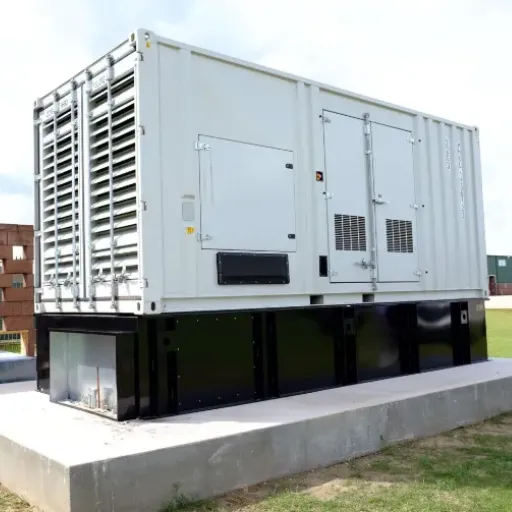
Restaurants must ensure they have backup power for their catering services in case of a power outage within the food service areas. A blackout may result in the loss of cool compartments, delays in the food preparation process, and even the inability to serve food to customers in the worst-case scenario. With a reliable power backup, a restaurant can maintain food preservation, cooking, and illumination, resulting in less spillage and increased profitability. In the same vein, a good power backup strategy can sustain operations without compromising customer satisfaction, as such patrons are least likely to be affected by a lack of service. Threats notwithstanding, acquiring backup energy supplies can even enhance the management of organizations in the food service industry; thus, it is not a near-term or remote measure, but a tangible one to continue their economic operations in the sector.
Impact of Power Outages on Restaurant Operations
Power shortages are among the avoidable factors that can contribute to the breakdown of restaurant operations, leading to revenue loss. These malfunctions will result in a breakdown of the refrigeration systems, and the food will rot very quickly. This, in turn, leads to the spoilage of supplies and an increase in costs, as a result of spending money to alleviate the shortage. At the same time, they may delay the process of preparing dishes, which in turn results in failing to attend to the customer’s needs or even to take table reservations. The evidence of a one-hour power failure resulting in a substantial revenue loss, particularly given the high level of revenue, is quite apparent from a recent market research study. Not to mention that power cuts also disrupt the arrangement by disrupting other technical operations, such as the payment processing system, as always. Failure to prevent these barriers is a crucial aspect that restaurants must focus on to protect their operations and service.
Benefits of Having a Backup Power System
Business Continuity
A backup power facility offered as an option responds to any blackout at a restaurant. This efficiently avoids interruptions, enables profit retention, and encourages continued operation. The statistics on the industry indicate that a significant loss can be realized in a small restaurant where operations are hampered for just one hour, and the loss could be as high as $5,000 or even higher for larger institutions.
Preservation of Inventory
During outages, food stored in refrigerators and freezers can spoil rapidly. If a backup power system is available, the refrigeration equipment is maintained in working condition, and this safeguard eliminates the loss of thousands of dollars’ worth of food and drink.
Enhanced Customer Satisfaction
Keeping this in mind, it is also understood that operating as usual at such times helps significantly in maintaining the level of customer expectations. It also creates an appeal for clients to return to the same place of dining, as they feel that the establishment is very reliable and able to weather harsh or trying times well without compromising the quality of service.
Uninterrupted Payment Processing
Successful businesses in the modern world require the use of electricity. It is used in web design for specific plants, the introduction of card readers for various services, the use of Bitcoin, and many other applications. With backup power, it is easy to overcome any shortcomings, such as those of the cashier machine, or it is not possible due to a power blackout. Furthermore, this helps maintain a steady flow during the procession and reduces hyperactive behavior among website or mobile application users, among other benefits.
Compliance with Safety Standards
Safety is a central concern in the case of blackouts. Backup power keeps the electrically operated devices that light the area, heat food, and provide security through fire alarm systems powered by a circular power source, which keeps alarm appliances running. Fire alarm devices that are electrically operated could be used for a maximum of six months or a year.
Competitive Advantage
These useful devices keep all the power facilities up and running under the conditions by providing the power supply to these specific zones within the building, as all different electrical walkways are connected to one part, which then powers up the other.
Regulations and Safety Considerations
It is of utmost importance to comply with all local, state, and federal laws when developing backup energy sources. Restaurant generators, as well as other auxiliary power backup equipments, must first of all meet the environmental standards in place in the area, such as noise and emissions control. For these systems to be of great benefit in their operation, particularly in ensuring reliable and safe use during blackouts, they require professional installation and routine servicing by competent experts.
When using fuel-powered generators, congested spaces and poor ventilation pose significant risks, as they lead to the rapid accumulation of carbon monoxide gas, which can be fatal. Although some policies are not available, many establishments require carbon monoxide monitors to be incorporated into their health support systems. In a similar respect, establishments must put sufficient effort into the passive components of protection through the installation of the relevant fire protection facilities.
Conducting inspections may alleviate safety zones and secure both, given the existing regulatory structures that support anomaly detection procedures. It is possible to manage the kitchen without impeding the restaurant’s activity, and safety issues for employees and the health of clients will be addressed in the riot.
Commercial Generators: Features and Considerations
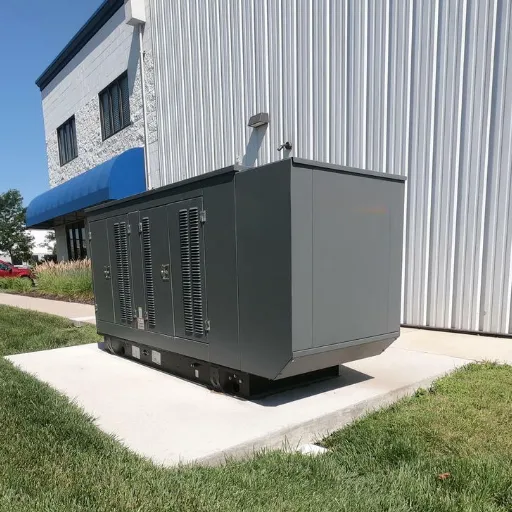
One of the primary reasons commercial power generators remain essential is that they provide a reliable supply during outages and even when the primary electricity source fails. Several elements must therefore be taken note of when discussing these devices, and they are as enumerated below:
- Capacity and Power Output: Calculate the maximum energy demand of the prospective facility and choose the electrical system that achieves this objective. This should involve accommodating critical systems such as refrigeration, lighting, and heating, ventilation, and air conditioning (HVAC).
- Fuel Type: The fuel most frequently used in the engines of commercial power is Diesel, LPG, or Propane, each of which has its preferred reasons, such as local presence, economy, and performance suitable for the requirements of commercial operations.
- Automatic Transfer Switch (ATS): This device ensures that there is no interference or disruption to the regular supply service when a fault occurs in the system, such as a power supply outage in the grid, and switches the load to the backup generator.
- Noise Levels: The amount of noise produced varies between different models of the devices. In residential or urban areas, it is advisable to opt for generators equipped with low-noise technology to avoid causing noise pollution, as per the local rules.
- Maintenance: Focus on products with a simple maintenance process and ensure the machine is on a regular service schedule to ensure long-term reliability.
Key Features to Look for in Commercial Generators
- Fuel Efficiency: Modern commercial generators feature an advanced fuel system that optimizes fuel intake, resulting in lower long-term costs. Choose Generators that offer a long running time per tank of fuel for optimal energy efficiency.
- Power Output Options: Due to the varying energy needs of your firm at different times, some generators can adapt to power requirements with adjustable power output facilities, thereby eliminating unnecessary fuel wastage or any other form of wear.
- Remote Monitoring Capabilities: Many current time generators are designed with remote monitoring capabilities, supporting innovative technology systems. Users can log in to the system through their mobile applications or any cloud-based system, where they can track performance and receive maintenance time alerts. They can also monitor the fuel level at any time.
- Durability and Weather Resistance: Generators constructed from robust materials and equipped with the appropriate weather-resistant housing are paramount, especially where an efficient power supply is required in outdoor and challenging industrial environments.
- Compliance with Standards: It is essential to verify that the generator delivered is safe and environmentally compliant, meaning, for instance, EPA Tier 4 or any other prescribed levels applicable to the given region. This will not only expose the purchaser to cleanup costs but also potentially lead to litigation if the buyer’s agencies or courts enforce environmental legislation or preventive duty.
Cost Analysis: Initial Investment vs. Long-term Savings
The cost involved in purchasing the generator is one of the key aspects that one should consider. Generators of good quality, especially those engineered with sophisticated technologies and offering excellent performance, often come with a very high price. It is worth mentioning that their benefits in the long run, such as lower maintenance expenses, reduced fuel utilization, and longer operational time, often defer expenditure.
For example, fuel-efficient models can significantly reduce overall operating costs in the long run. Especially beneficial when a business or project must provide an active product or service continuously. In addition, contemporary generators often contain innovative control systems that allow ensuring the most efficient generator operation, detecting probable defects beforehand, and reducing service costs. Finally, the use of specific, credible, and established makes further maintains the uptime, thereby enhancing the use and productivity of the asset.
Initial capital outlay may seem substantial, but the benefits outweigh the costs in numerous operations, resulting in a percentage reduction that makes it a rational investment in generators that combine efficient working and environmentally friendly performance.
Maintenance Tips for Longevity
Adhere to a Regular Maintenance Schedule
Perform maintenance as advised by the producer of a piece of equipment. Routinely check how well it is working, change the oil, and inspect the air filter elements as needed. For example, if a motor has been running for 100 hours, drain and replace its coolant or lubricants.
Keep Oil and Filters Clean
Examine the engine oil level before using the equipment and adjust it as necessary. It is also recommended to check and change the air filters and fuel filtration system in accordance with the steps outlined in the operational manual at approximately every 200-300 hours of equipment operation. Air Filters, oil filters, and Diesel Fuel filters should be maintained appropriately to ensure the engine operates at optimal efficiency and prevents wear and damage over time.
Inspect and Replace Spark Plugs
Visually inspect the spark plugs for signs of wear and carbon. Replace the crankcase oil and oil filters in the motor every 100 hours of operation to maintain the engine in good condition.
Run the Generator Regularly
It is recommended to service the generator(s) after every 20 to 30 days by taking them out for a 20 to 30 minute load test. This is done to ensure the engine continues to run and to eliminate stale gas in the system, as well as to verify that all moving parts are functioning correctly.
Use Quality Fuel and Stabilizers
Use only fresh, uncontaminated fuel to operate the engine. It is also recommended to incorporate a preservative into the fuel to preserve its quality when the generator is not in operation.
Monitor Battery Health
For electric-start generators, maintain adequate battery charge and ensure tight terminals. After every 2-3 years, or as per the manufacturer’s instructions, the batteries should be replaced to avoid inconvenience.
Truck Generator: A Mobile Power Solution
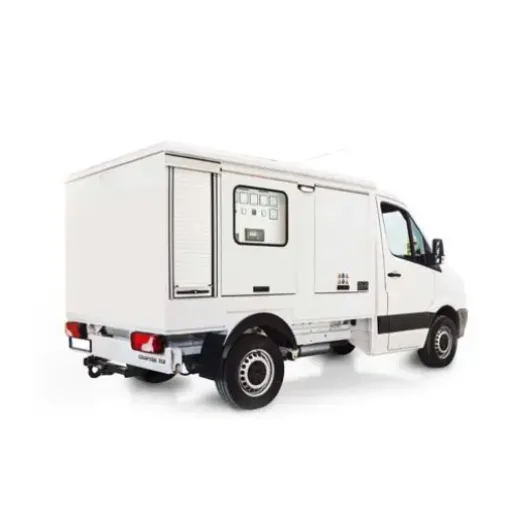
Truck-mounted electronic power generators operate by drawing fuel from the truck’s ullage and converting it into electricity to run external devices or operate essential onboard systems. These units serve as permanent, powered sources of electricity and are used in transportation, such as long-distance traveling, mobile work, and as a base for equipment installed in the field. Their strong functional design and sturdy materials ensure they provide long-lasting service, even when transported or used on rugged terrains. Obviously, ongoing support measures such as fuel level maintenance and cleaning of filters are necessary to maintain optimal performance.
Advantages of Truck Generators for Catering Services
Consistent Power Supply
Truck generators that operate independently of the grid make it possible to power essential equipment such as refrigeration units, ovens, and light the cabin of the vehicle, turning it into a living space. This way, fresh provisions can be served and prepared correctly, even during major events or operations in rural areas.
Portability and Flexibility
Providing power for catering equipment, the truck generators are conveniently installed on catering trucks due to their compact design. They are also very portable, making it easy to cater at scenarios like weddings, festivals, or company events.
Fuel Efficiency
These generators draw fuel from the vehicle’s fuel tank, making them the most effective in saving fuel and eliminating the need for standby energy sources. Such an effective system enables cost-effectiveness in areas like fuel consumption.
Reduced Downtime
In most cases, catering establishments are bound to install a standby power source in their premises. The reason is to ensure that specific equipment is not internally damaged due to the interaction or insufficiency of other equipment. This practice eliminates the costs associated with hazardous pollution.
Cost-Effectiveness
Catering firms can save a significant amount of money by purchasing a truck generator rather than incurring the expense of rental equipment that may be inconvenient or expensive, and the use of local power sources, which can fail from time to time.
Environmental Considerations
A vast majority of the new truck generators are environmentally friendly and are designed to minimize fuel consumption and emissions. In this regard, food service companies can successfully implement environmental-related regulations, as well as exhaust management, within their enterprises.
Choosing the Right Truck Generator
Upon deliberating the choice of a generator suitable for a truck, several essential factors should not be overlooked. The best way to determine the right power needed is by considering the appliances and/or activities that the given structure will be used for. High-wattage generators are always recommended to ensure smooth operation, as they can withstand the peak power requirements. On the other hand, another factor in choosing a truck generator is the fuel type, which is mostly diesel or gasoline, the latter being more common. Still, there are some modern fuels, such as propane or hybrid, which can also be accessed and are cost-effective, with very low pollution levels.
Apart from this, also consider other factors, such as how silent and remote control options work, and how efficiently safety measures and features like auto-shutoff are implemented. The product’s durability should also be considered, along with its portability, because a portable generator will be used in outdoor areas. Lastly, consider the maintenance and warranties for used products, especially if the functionality of a product and its long-term costs are of concern. Evaluate each of these considerations closely to make a decision that takes into account the performance, environmental, and financial aspects.
Integration with Existing Power Systems
Before integrating your generator with the existing power systems, several aspects need to be considered to ensure minimal waste and safety. Start by evaluating the compatibility of your generator with the existing system, including factors such as voltage and power requirements. Most modern generators today are equipped with additional features, such as automatic transfer switches (ATS), which facilitate the switchover of the power supply from the generator to the utility source in the event of a failure. Moreover, employing innovative metering systems would be beneficial in controlling energy consumption, as these systems provide immediate energy statistics that can be used to enhance performance and reduce costs. In case the system or solar power plant requires additional sources of renewable energy beyond solar, one can consider purchasing hybrid generators that can utilize both single or a combination of clean sources and the available generators during periods of low energy generation. Finally, this is ordinary equipment; institutional implementation by inexperienced personnel may damage system components or pose a threat to consumers’ lives due to unexpected power outages.
Making the Right Decision for Your Restaurant
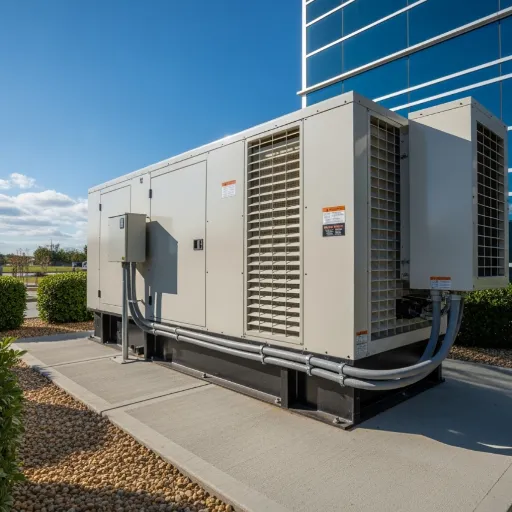
When selecting the ideal generator for use in a restaurant, the first consideration is, however, prioritizing reliability, effectiveness, and appropriateness of what the owner would like to achieve. It is advisable to assess the generator’s capacity against the size of the restaurant and the power needs of the clients. Acquire only reliable and cost-effective units to minimize the overall business cost. Where needed, environmental consciousness and sustainable development can be achieved by purchasing hybrid generators or renewable energy-powered standby equipment. Whenever possible, avoid buying used electrical equipment and instead, have it installed or maintained by licensed personnel to ensure optimal performance.
Evaluating Your Power Needs
Determining the right amount of power needed begins with correctly understanding the equipment, appliances, and overall energy that will be utilized. You can start by listing all the mandatory items that consume electricity, such as refrigerators, cookers, HVAC systems, and any other lighting requirements. Again, switch to the energy star ratings and power requirements of each device – generally found on the labels or in the user manual – and consider how power is used to calculate total energy consumption. Also, account for the busy periods of the business so that you do not install a generator that cannot power the company during the high power demand spans. In the Phone Backup Service, a high-power supply is essential; thus, the installation of a raised power supply is required. Please note that in the future, there may be product additions or upgrades to the operating business; therefore, the generator size should be sufficient to deliver the required services. Having evaluated the above aspects, one can confidently choose the type and volume of generator that will be useful for the business role that suits.
Next Steps in Acquiring a Generator
Evaluate Your Budget
Defining a clear budget is an absolute necessity when making the decision on which generator to buy. Be sure to consider not only the initial cost charges, but also the installation of the equipment, operational expenses (including fuel storage and maintenance), and any potential modifications or future enhancements to implement the system. Find out which generators offer the most bang for your buck by tracking recent market prices of these products.
Choose the Right Type of Generator
You need to decide whether you require a portable generator set, a redundant power supply, or an inverter generator. Generators that run on diesel, natural gas, propane, or solar energy have different fuel types, which can significantly affect the efficiency and cost of the device. Research the latest generator units that focus on energy conservation and environmental protection by producing minimal waste.
Assess Local Regulations and Permits
Consider the relevant ordinances before purchasing a generator. The authorities may inform you about the permissions they require, the noise levels permitted, and any issues related to land use. Ensuring that one’s services fall within the parameters of the law is crucial to avoiding unnecessary litigation and facilitating smooth installation.
Find a Certified Supplier and Installer
Choose to work with Reputable Vendors or Manufacturers who give Warranties and Extensive Developer Support. For installation, ensure that only recognized professionals are used to meet the safety and operational requirements. Continuous cooperation with the supplier for regular maintenance services and any additional repair work is also recommended.
Schedule Regular Maintenance Post-Installation
Once the generator is successfully mounted, it is essential to have a maintenance plan in place to ensure adequate maintenance. Schedule routine checkups and repairs to address any degradation and prevent unforeseen downtime. There are other ways to monitor performance, track fuel consumption, and more.
Call to Action: Consult with a Generator Specialist
Prevent power interruptions at your workplace or residence by contacting a specialist in generators now. A specialist is a person who can guide you on concerns related to the energy flow and ensure that you are offered a suitable and appropriate generator set tailored to the user’s needs. They are also equipped with the knowledge and skills that help them tackle the emerging trends, i.e., fuel-saving environments, fuel-efficient designs, and long-lasting operational designs. It is only with the help of a person who has an unusual ability that the need to understand the warranty conditions, the fitting technique, and other tips that keep an engine in good condition arises. Avoid uncertainty in future power issues by scheduling a consultation appointment.
Reference Sources
-
Table Token Generator and Indicator in Restaurant using Micro-controller:
- Summary: This study explores the use of Arduino-based microcontrollers to improve customer service in restaurants. The proposed system allows customers to generate a token by pressing a button, notifying waiters of their table’s needs.
-
The Quality of the Service, Superior Value Generator in the Restaurant Sector:
- Summary: This paper examines the relationship between service quality, business image, and reputation in restaurants. It highlights that while service quality significantly impacts the restaurant’s image, it does not directly influence reputation.
Frequently Asked Questions (FAQs)
Q: How do I select a generator for my restaurant’s power needs?
A: To opt for a generator for your restaurant, you should estimate the total wattage of all the appliances that the owner would perhaps use, including kitchen appliances, lighting, and HVAC systems. It is necessary to find a generator that does not require additional electric power for its operations or another load power to react to any unforeseen power surge. A Suitable size of the generator to choose is a commercial generator, which is designed for heavy usage and will withstand the harsh conditions of an operating restaurant. To achieve this, another option is to opt for backup generators that are suitable for use inside the building, ensuring the required specifications are in place.
Q: What are the benefits of using commercial generators in restaurants?
A: Commercial Generators come with several merits for restaurant owners, with one of the merits being the ability of the hotel operations to continue as usual during a power blackout, as they are always there to supply power. They differ from those used at home because they are much larger and can handle operations that require the simultaneous use of most of a kitchen’s appliances and services. They also provide a sense of safety in being able to finish serving those meals and maintain a safe and clean kitchen. Additionally, it can offer a commercial generator for your business at a lower price. This, in turn, reduces the chances of a loss arising from power outages and also provides resources to be invested in making their business more resilient to failure, at least where power failure is a threat.
Q: Can battery-powered indoor generators be used in a restaurant?
A: Sure, one can use battery-powered indoor generators in restaurants, particularly in situations where a smaller scale is in place or as backup for some appliances. These indoor generators are typically quieter and do not emit any pollutants, making them safe to use indoors. It is even possible to power essential gadgets, such as POS systems or refrigerators, for the short span these gadgets are installed, at a minimal charge. Yet, one must also bear in mind that it is not the capacity of the battery-powered indoor generator that should be considered. For more institutional types of facilities, a stronger form of backup power supply may be necessary to efficiently supply all the required systems.
Q: How can I ensure my restaurant has reliable power during events?
A: When hosting your restaurant regularly, forever promising desired electricity, think about a commercial generator specifically for those services. This should also provide an emergency alternative source of power in cases of a breakdown in the usual power transmission system. In this case, it is also essential to create a drawing of the power requirements and select a generator that can handle the necessary loads. Maintaining a selection of generators makes it simpler to plan for such instances and ensure you have the appropriate generator to work at a particular time. It is advisable that you, from time to time, test and maintain your generator, ideally on a weekly or monthly basis, as this will ensure that it is in good working condition in the event you need to use it.



